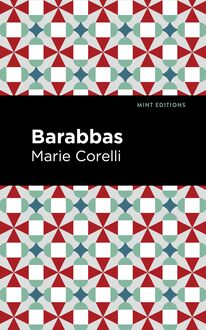-
 Univers
Univers
-
 Ebooks
Ebooks
-
 Livres audio
Livres audio
-
 Presse
Presse
-
 Podcasts
Podcasts
-
 BD
BD
-
 Documents
Documents
-
- Cours
- Révisions
- Ressources pédagogiques
- Sciences de l’éducation
- Manuels scolaires
- Langues
- Travaux de classe
- Annales de BEP
- Etudes supérieures
- Maternelle et primaire
- Fiches de lecture
- Orientation scolaire
- Méthodologie
- Corrigés de devoir
- Annales d’examens et concours
- Annales du bac
- Annales du brevet
- Rapports de stage
La lecture à portée de main
Vous pourrez modifier la taille du texte de cet ouvrage
Découvre YouScribe en t'inscrivant gratuitement
Je m'inscrisDécouvre YouScribe en t'inscrivant gratuitement
Je m'inscrisEn savoir plus
Vous pourrez modifier la taille du texte de cet ouvrage
En savoir plus

Description
Comprising of seven short stories, Old Friends and New by Sarah Orne Jewett explores the lives of the residents of small New England towns, both rural and oceanside. Beginning the collection, A Lost Lover follows the love story of an elderly woman named Horatia Dane. After rumors of her love life begin circulating around the town, Horatia reveals her side of the story, a heart-breaking tale of a lover lost at sea. In A Sorrowful Guest, a young military man writes to his sister, begging her to move to America to live with him. With similar themes of loneliness, A Late Supper depicts an elderly woman in search of company after she becomes the sole surviving member of her family. Reminiscing on the different kinds of family dynamics, a woman named Mary tries to lift her niece’s spirits by telling her a story about her less-than-ideal upbringing in Mr. Bruce. While Mr. Bruce wrestles with the past, Miss Sydney’s Flowers encourages a future of change through the depiction of Miss. Sydney, a long-term resident of her town. When the city decides to pave a new road next to her home, Miss Sydney is upset and resentful of the change. However, as the days go by, she realizes the benefits of having a busy street near her house. With masterful description, picturesque imagery, and stunning characterization, Old Friends and New by Sarah Orne Jewett provides an intimate portrayal of 19th century New England. As an excellent example of the local color movement, a literary initiative to place distinct regions under a spotlight, Old Friends and New is comprised of short stories that vividly depict the people, landscape, and customs of New England states. This edition of Old Friends and New by Sarah Orne Jewett features an eye-catching new cover design and is presented in a font that is both modern and readable. With these accommodations, this edition is accessible and appealing to contemporary audiences, restoring Old Friends and New to modern standards while preserving the original tranquility and beauty of the work of Sarah Orne Jewett.
Sujets
Informations
| Publié par | Mint Editions |
| Date de parution | 21 mai 2021 |
| Nombre de lectures | 0 |
| EAN13 | 9781513284873 |
| Langue | English |
Informations légales : prix de location à la page 0,0400€. Cette information est donnée uniquement à titre indicatif conformément à la législation en vigueur.
Extrait
Old Friends and New
Sarah Orne Jewett
Old Friends and New was first published in 1879.
This edition published by Mint Editions 2021.
ISBN 9781513279855 | E-ISBN 9781513284873
Published by Mint Editions®
minteditionbooks .com
Publishing Director: Jennifer Newens
Design & Production: Rachel Lopez Metzger
Project Manager: Micaela Clark
Typesetting: Westchester Publishing Services
C ONTENTS A L OST L OVER A S ORROWFUL G UEST A L ATE S UPPER M R. B RUCE M ISS S YDNEY’S F LOWERS L ADY F ERRY A B IT OF S HORE L IFE
A L OST L OVER
F or a great many years it had been understood in Longfield that Miss Horatia Dane once had a lover, and that he had been lost at sea. By little and little, in one way and another, her acquaintances had found out or made up the whole story; and Miss Dane stood in the position, not of an unmarried woman exactly, but rather of having spent most of her life in a long and lonely widowhood. She looked like a person with a history, strangers often said (as if we each did not have a history); and her own unbroken reserve about this romance of hers gave everybody the more respect for it.
The Longfield people paid willing deference to Miss Dane: her family had always been one that could be liked and respected, and she was the last that was left in the old home of which she was so fond. This was a high, square house, with a row of pointed windows in its roof, a peaked porch in front, with some lilac-bushes around it; and down by the road was a long, orderly procession of poplars, like a row of sentinels standing guard. She had lived here alone since her father’s death, twenty years before. She was a kind, just woman, whose pleasures were of a stately and sober sort; and she seemed not unhappy in her loneliness, though she sometimes said gravely that she was the last of her family, as if the fact had a great sadness for her.
She had some middle-aged and elderly cousins living at a distance, and they came occasionally to see her; but there had been no young people staying in the house for many years until this summer, when the daughter of her youngest cousin had written to ask if she might come to make a visit. She was a motherless girl of twenty, both older and younger than her years. Her father and brother, who were civil engineers, had taken some work upon the line of a railway in the far Western country. Nelly had made many long journeys with them before and since she had left school, and she had meant to follow them now, after she had spent a fortnight with the old cousin whom she had not seen since her childhood. Her father had laughed at the visit as a freak, and had warned her of the dulness and primness of Longfield; but the result was that the girl found herself very happy in the comfortable home. She was still her own free, unfettered, lucky, and sunshiny self; and the old house was so much pleasanter for the girlish face and life, that Miss Horatia had, at first timidly and then most heartily, begged her to stay for the whole summer, or even the autumn, until her father was ready to come East. The name of Dane was very dear to Miss Horatia, and she grew fonder of her guest. When the village-people saw her glance at the girl affectionately, as they sat together in the family-pew of a Sunday, or saw them walking together after tea, they said it was a good thing for Miss Horatia; how bright she looked; and no doubt she would leave all her money to Nelly Dane, if she played her cards well.
But we will do Nelly justice, and say that she was not mercenary: she would have scorned such a thought. She had grown to have a great love for her cousin Horatia, and she liked to please her. She idealized her, I have no doubt; and her repression, her grave courtesy and rare words of approval, had a great fascination for a girl who had just been used to people who chattered, and were upon most intimate terms with you directly, and could forget you with equal ease. And Nelly liked having so admiring and easily pleased an audience as Miss Dane and her old servant Melissa. She liked to be queen of her company: she had so many gay, bright stories of what had happened to herself and her friends. Besides, she was clever with her needle, and had all those practical gifts which elderly women approve so heartily in girls. They liked her pretty clothes; she was sensible and economical and busy; they praised her to each other and to the world, and even stubborn old Andrew, the man, to whom Miss Horatia herself spoke with deference, would do any thing she asked. Nelly would by no means choose so dull a life as this for the rest of her days; but she enjoyed it immensely for the time being. She instinctively avoided all that would shock the grave dignity and old-school ideas of Miss Dane; and somehow she never had felt happier or better satisfied with life. I think it was because she was her best and most lady-like self. It was not long before she knew the village-people almost as well as Miss Dane did, and she became a very great favorite, as a girl so easily can who is good-natured and pretty, and well versed in city fashions; who has that tact and cleverness that come to such a nature from going about the world and knowing many people.
She had not been in Longfield many weeks before she heard something of Miss Dane’s love-story; for one of her new friends said, in a confidential moment, “Does your cousin ever speak to you about the young man to whom she was engaged to be married?” And Nelly answered, “No,” with great wonder, and not without regret at her own ignorance. After this she kept her eyes and ears open for whatever news of this lover’s existence might be found.
At last it happened one day that she had a good chance for a friendly talk with Melissa; for who should know about the family affairs better than she? Miss Horatia had taken her second-best parasol, with a deep fringe, and had gone majestically down the street to do some morning errands which she could trust to no one. Melissa was shelling peas at the shady kitchen-doorstep, and Nelly came strolling round from the garden, along the clean-swept flag-stones, and sat down to help her. Melissa moved along, with a grim smile, to make room for her. “You needn’t bother yourself,” said she: “I’ve nothing else to do. You’ll green your fingers all over.” But she was evidently pleased to have company.
“My fingers will wash,” said Nelly, “and I’ve nothing else to do either. Please push the basket this way a little, or I shall scatter the pods, and then you will scold.” She went to work busily, while she tried to think of the best way to find out the story she wished to hear.
“There!” said Melissa, “I never told Miss H’ratia to get some citron, and I settled yesterday to make some pound-cake this forenoon after I got dinner along a piece. She’s most out o’ mustard too; she’s set about having mustard to eat with her beef, just as the old colonel was before her. I never saw any other folks eat mustard with their roast beef; but every family has their own tricks. I tied a thread round my left-hand little finger purpose to remember that citron before she came down this morning. I hope I ain’t losing my fac’lties.” It was seldom that Melissa was so talkative as this at first. She was clearly in a talkative mood.
“Melissa,” asked Nelly, with great bravery, after a minute or two of silence, “who was it that my cousin Horatia was going to many? It’s odd that I shouldn’t know; but I don’t remember father’s ever speaking of it, and I shouldn’t think of asking her.”
“I s’pose it’ll seem strange to you,” said Melissa, beginning to shell the peas a great deal faster, “but, as many years as I have lived in this house with her,—her mother, the old lady, fetched me up,—I never knew Miss H’ratia to say a word about him. But there! she knows I know, and we’ve got an understanding on many things we never talk over as some folks would. I’ve heard about it from other folks. She was visiting her great-aunt in Salem when she met with him. His name was Carrick, and it was presumed they was going to be married when he came home from the voyage he was lost on. He had the promise of going out master of a new ship. They didn’t keep company long: it was made up of a sudden, and folks here didn’t get hold of the story till some time after. I’ve heard some that ought to know say it was only talk, and they never were engaged to be married no more than I am.”
“You say he was lost at sea?” asked Nelly.
“The ship never was heard from. They supposed she was run down in the night out in the South Seas somewhere. It was a good while before they gave up expecting news; but none ever come. I think she set every thing by him, and took it very hard losing of him. But there! she’d never say a word. You’re the freest-spoken Dane I ever saw; but you may take it from ‘our mother’s folks. I know he gave her that whale’s tooth with the ship drawn on it that’s on the mantel-piece in her room. She may have a sight of other keepsakes, for all I know; but it ain’t likely.” And here there was a pause, in which Nelly grew sorrowful as she thought of the long waiting for tidings of the missing ship, and of her cousin’s solitary life. It was very odd to think of prim Miss Horatia’s being in love with a sailor. There was a young lieutenant in the navy whom Nelly herself liked dearly, and he had gone away on a long voyage. “Perhaps she’s been just as well off,” said Melissa. “She’s dreadful set, y’r cousin H’ratia is, and sailors is high-tempered men. I’ve heard it hinted that he was a fast fellow; and if a woman’s got a good home like this, and’s able to do for herself, she’d better stay there. I ain’t going to give up a certainty for an uncertainty,—that’s what I always tell ’em,” added Melissa, with great decision, as if she were besieged by lovers; but Nelly smiled inwardly as she thought of the courage it would take to support any one who wished to offer her companion his
-
 Univers
Univers
-
 Ebooks
Ebooks
-
 Livres audio
Livres audio
-
 Presse
Presse
-
 Podcasts
Podcasts
-
 BD
BD
-
 Documents
Documents
-
Jeunesse
-
Littérature
-
Ressources professionnelles
-
Santé et bien-être
-
Savoirs
-
Education
-
Loisirs et hobbies
-
Art, musique et cinéma
-
Actualité et débat de société
-
Jeunesse
-
Littérature
-
Ressources professionnelles
-
Santé et bien-être
-
Savoirs
-
Education
-
Loisirs et hobbies
-
Art, musique et cinéma
-
Actualité et débat de société
-
Actualités
-
Lifestyle
-
Presse jeunesse
-
Presse professionnelle
-
Pratique
-
Presse sportive
-
Presse internationale
-
Culture & Médias
-
Action et Aventures
-
Science-fiction et Fantasy
-
Société
-
Jeunesse
-
Littérature
-
Ressources professionnelles
-
Santé et bien-être
-
Savoirs
-
Education
-
Loisirs et hobbies
-
Art, musique et cinéma
-
Actualité et débat de société
- Cours
- Révisions
- Ressources pédagogiques
- Sciences de l’éducation
- Manuels scolaires
- Langues
- Travaux de classe
- Annales de BEP
- Etudes supérieures
- Maternelle et primaire
- Fiches de lecture
- Orientation scolaire
- Méthodologie
- Corrigés de devoir
- Annales d’examens et concours
- Annales du bac
- Annales du brevet
- Rapports de stage
















